
Non-fiction books teach us about the real world.
It took Capote over 4 years and 8000 pages of notes to write “In Cold Blood”. But you can just pick it up and absorb it within a week. And you can do that with any topic – history, culinary arts, symbolism, nature, science – and learn from authors who spent their lifetimes researching it. I recently watched an interview with Warren Buffett, one of the richest men in the world. He said he’s reading for around four hours every day. He mostly enjoys reading biographies and autobiographies of great, creative, and original people. In this way, he learns lessons of a lifetime without having to live them (and he’s able to become wealthy in the process). On the list that follows, I put some of my favorite, life-changing works of non-fiction that also helped me to become a freelance writer. Please pick and choose and embark on your next reading or listening adventure.
62 Life-Changing Non-Fiction Books:
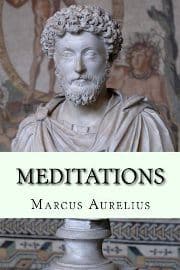
Marcus Aurelius – Meditations
Marcus Aurelius was a Roman Emperor who ruled during the Decline and Fall period. He absorbed lessons from some of the greatest philosophers like Plato, Aristotle, Seneca, and Epictetus, and used them to create his masterpiece which was never intended to be published. “Meditations” is a classic of stoic philosophy, and it’s as applicable today, as it was almost two thousand years ago. It tells you to take control of your mind, accept the caprices of Fortune, remember death, and observe all life and its trifles from a “higher plane”. “Dwell on the beauty of life. Watch the stars, and see yourself running with them.”
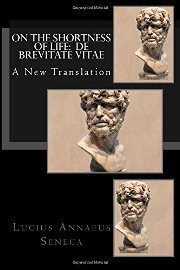
Seneca – On Shortness of Life
This is a classic of the Stoic Philosophy. To get the message and implement it in your own life, you should probably read this short letter at least once a month. It will help you to separate the important from the unimportant. Seneca tells us that we might die this very day and that we should live every day like it was our last. In the face of such news (that we don’t want to accept), what are fame, material possessions, and high offices? What is constant business, fussiness, and anxiety? You will die, my friend, so you may as well welcome death with a smile. You can do it, by studying philosophy and learning how to live a better life.
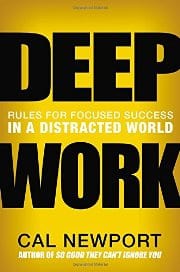
Cal Newport – Deep Work: Rules For Focused Success in a Distracted World
This is necessary reading for people who want to multiply their creative output. The book starts with the story of Carl Jung, who frequently retired to his Bollingen Tower at Lake Zurich. He would spend hours upon hours working on ideas that would rival Freud’s, and ultimately change the world of psychology and many other social studies. Cal Newport suggests that we should all treat Jung as an example and learn how to engage in “deep work”, i.e. work without constant distraction. The book contains many useful ideas on how to achieve that goal.
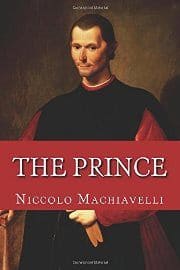
Niccolo Machiavelli – The Prince
If you want to know what “Machiavellian” means (yes, it suits Frank Underwood pretty well), you have to read this classic volume. In it, you will find the rules of conduct to follow while managing a state, an organization, or a crime family. There’s a lot of cruelty, murder, and crushing your enemies in “Prince” but it’s all for the good of the state so the means justify the end. Among things like “No proceeding is better than that which you have concealed from the enemy until the time you have executed it”, you’ll also find great bits about human nature in general.
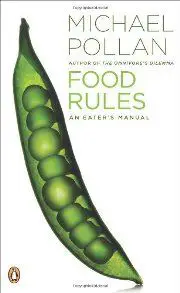
Michael Pollan – Food Rules: An Eater’s Manual
The world is filled with perfect diet plans and opposing opinions on what you should eat. Fortunately, we have a person like Michael Pollan who researched the subject thoroughly and presented all the healthy-diet-related ideas in “Food Rules”. This book is roughly 100 pages long and consists of 64 rules you can apply in your daily life. The notion which sums up the book pretty well is “Eat food. Not too much. Mostly plants.”
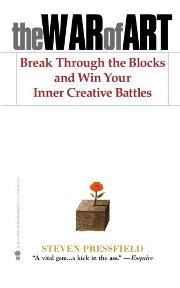
Steven Pressfield – The War of Art: Break Through the Blocks and Win Your Inner Creative Battles
If you work in a creative field, this book is a must-read. I’ve read tons of books about procrastination and productivity in the past but “The War of Art” crushed them all. It’s all about the concept of “resistance” you see. You give yourself countless excuses about why should you do your work tomorrow instead of today. Your job is to overcome this resistance and listen to the whispers of the Muse. But to make it happen, you will have to make a sacrifice – you will have to become a pro and that includes showing up every day, seeking order in your life, and acting in the face of fear.
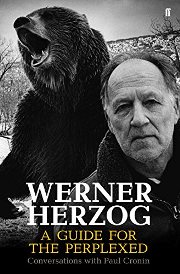
Werner Herzog, Paul Cronin – A Guide for the Perplexed
Werner Herzog, an expert filmmaker who made more than 60 movies is being interviewed by Paul Cronin. If you ever wanted to create your movie (or any other artistic project for that matter) this book is for you. The stories it contains are amazing –dragging a giant ship over the Amazon jungle, surviving encounters with Klaus Kinsky, and being stranded on a stormy top of the mountain for 48 hours with nothing more than a small piece of chocolate. Except for tales of hardship and accomplishment, the book is soaked in Herzog’s philosophy. After reading it, you’ll become a more independent, “rogue” kind of artist.
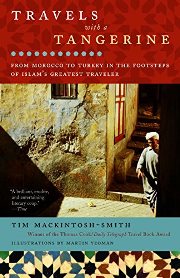
Tim Mackintosh-Smith – Travels With a Tangerine: A Journey in the Footsteps of Ibn Battuta
Quite appropriately, I devoured this book while on holiday in Morocco. It tells the story of a British historian (based in Yemen) who follows in the footsteps of Ibn Battuta – one of the greatest travelers who ever lived. Mackintosh-Smith equips himself with “Travels”, a 14th-century account of Battuta’s journey. Then he tries to visit the places described in the original work. Battuta traveled from Tangier, all the way up to northern China so that’s quite a lot of footsteps to follow. This erudite book is the first part of a trilogy and it deals with travels from Morocco to Anatolia.
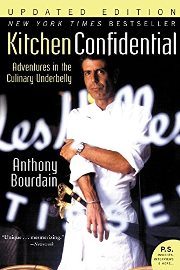
Anthony Bourdain – Kitchen Confidential: Adventures in the Culinary Underbelly
Anthony Bourdain is a seasoned chef and a TV personality and this book is his masterpiece. It’s not just another story about life in the kitchen. It reads like a thriller and is filled with punchy, mouth-watering sentences. Bourdain started as a dishwasher in a cheap restaurant back in Provincetown. Then, with skill, perseverance, passion, and a lot of drugs and alcohol, he was able to rise to stardom and rule three-star restaurants in NYC. It’s an autobiographical work, but from it, you’ll also learn about the world of pro-cooking, kitchen knives, and why you should never order fish on Monday.
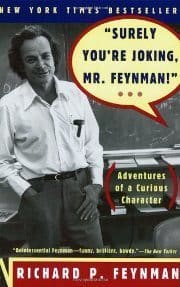
Richard P. Feynman – Surely You’re Joking, Mr. Feynman!
Richard Feynman was one of the most curious characters of all time. Many people claim that he was the smartest person who ever lived. Surely You’re Joking Mr. Feynman gives you a glimpse into the life and works of the famous physicist. Since he was a child, he always planned some type of mischief. Among other things, he fixed radios by thinking, deciphered Mayan hieroglyphs, visited strip clubs, cracked safes, played bongos, and won a Nobel Prize (which he didn’t want to accept). It’s surely one of the most illuminating books I’ve read. It will rekindle your creativity and your sense of what’s possible.
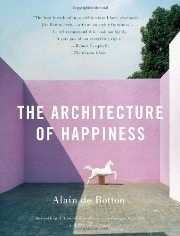
Alain de Botton – The Architecture of Happiness
Alain de Botton has an unusual knack for presenting philosophical notions in an approachable way. In this short book, he shares his ideas about one of the most important aspects of our life – the architecture and the surroundings in which we live. We’re tremendously affected by our neighborhoods, cities, squares, and parks. The Architecture of Happiness is a great book because it talks about things that we usually take for granted. After reading it, you may want to rethink the design of your apartment. You’ll also greatly expand your knowledge about architecture.
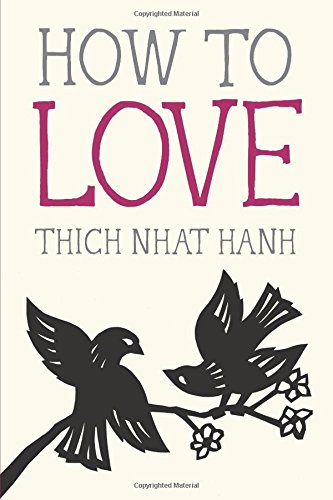
Thich Nhat Hanh – How to Love
This little book can change your life – especially if you’re in a romantic relationship. You can read it in one sitting, but you will want to muse about it for much longer and come back to it often. Written in simple language, it reveals great insights about love and human relationships. Reading even one page a day will get you closer to a happy and harmonious life with your partner.
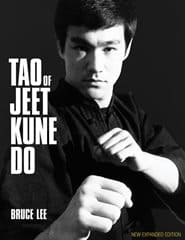
Bruce Lee – Tao of Jeet Kune Do
This book is a must-read for everyone interested in martial arts and philosophy. It has been compiled from Bruce Lee’s notes and essays. Many of them were written while The Dragon was recovering from his back injury. In the book, you’ll find the soul of Jeet Kune Do, a martial art defined by the free expression of the human body, as opposed to concentration on forms and unpractical formulas. “Tao of Jeet Kune Do” also contains Lee’s highly inspirational philosophy of life.
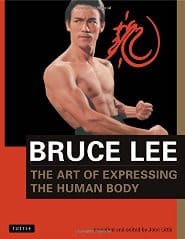
Bruce Lee & John Little – The Art of Expressing the Human Body
If you ever wondered, how Bruce Lee acquired his astounding physique, turn to this book for answers. Compiled mostly by John Little, a student of Lee, “The Art of Expressing The Human Body” will give you an idea of what it takes to get ripped. There are specific exercises, training routines, and even the diet that Lee used to become one of the best martial artists of all time (the books also contain numerous photos of Lee at his best). And if you want to know how he prepared for “Enter The Dragon”, you should check out Lee’s circuit and cross-training method.
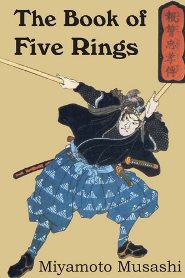
Musashi Miyamoto – The Book of Five Rings
“Perceive that which cannot be seen with the eye.” Miyamoto claimed to have fought over sixty duels, and five battles, always managing to cut his opponents into pieces. No wonder “The Book of Five Rings” which contains mainly thoughts about swordsmanship and military strategy became widely popular both in the Orient, and the Occident. It’s useful, especially for practitioners of Kendo, but it can also teach you a thing or two about human conflict, how to avoid it, and what to do when it’s unavoidable.
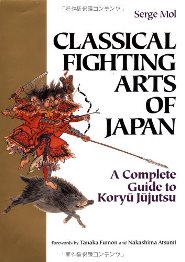
Serge Mol – Classical Fighting Arts of Japan
If you want to learn more about the traditional martial arts of Japan, this book is a must-read. Embellished with beautiful photos, it gives you the history of the development of fighting methods employed by the samurai. In the second section of the book, you’ll find an overview of the most important schools of Ju-Jitsu, from the times of medieval Japan to the present day.
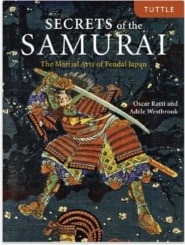
Adele Westbrook, Oscar Ratti – Secrets of the Samurai: The Martial Arts of Feudal Japan
This is a treat for anyone interested in the history of feudal Japan. From the book, you’ll learn about Japanese swords and armor, Shoguns, and the secret training methods of samurai. You’ll also get more knowledge about the formidable Ninja warriors who terrorized the courts of the warlords of the day. The book is not based on strict scholarly historical material, so consume it with a dose of healthy skepticism.
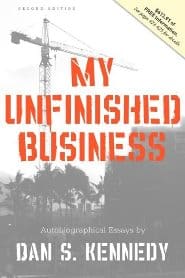
Dan Kennedy – My Unfinished Business
Anyone interested in direct marketing should be familiar with this work written by the king of info-marketing, Dan Kennedy. Dan was a master copywriter long before the dawn of the Internet, and his ideas helped to shape the new generation of content marketers. This book is his autobiography, in which he shares some of his personal life stories. He’s a rodeo rider, a former alcoholic, a divorcee, and a millionaire with one employee and no mobile phone. He also made his cat lick the stamps for his first direct marketing packages, and he didn’t neglect his writing duties even the day his mother died.
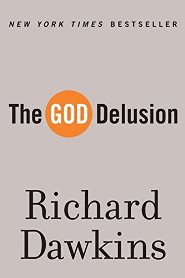
Richard Dawkins – The God Delusion
If you still believe in supernatural beings, please read this book. In it, Richard Dawkins, the famed evolutionary biologist presents all the main arguments for the non-existence of God. It’s a fascinating read, which expanded my thinking in many ways. From the book, you will find that there’s no reason for believing in God (there’s never 100% certainty, but there’s no evidence at all, so you don’t need that hypothesis). Many religions lived and died over millennia, and you shouldn’t believe in your chosen God just because you were born into a certain tradition. This book helped thousands to get free from “The God Delusion” and it can help you too.

Christopher Hitchens – Arguably, Essays
The mind of “The Hitch” was a truly astonishing one. As a constant traveler, writer, debater, and raconteur extraordinaire, he always offered a challenging point of view to his opponents. “Arguably, Essays” is a large collection (the book has over 800 pages) of mind-bending essays written for Slate, Vanity Fair, The Atlantic, and others. The book is broken down into sections and includes stories ranging from Jefferson’s war against the Muslim pirates to the concept of blowjob. If you want to widen your worldview, expand your vocabulary, and become acquainted with one of the best journalists of all time, read that book.
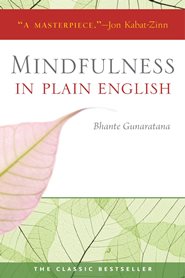
Bhante Gunaratana – Mindfulness in Plain English
The concept of mindfulness became widely popular, and Bhante Gunaratana is one of the great teachers who contributed to its appeal to the West. “Mindfulness in Plain English” is a pithy introduction to the theory and practice of mindfulness. Within the book, you will find useful tips about meditation, and dealing with challenges you’ll inevitably encounter during your practice. Moreover, there’s a chapter about mindfulness in everyday life which was a true life-changer for me. Finally, it doesn’t include any religious B.S., so you should give it a try.
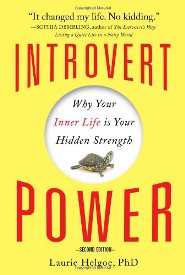
Laurie Helgoe – Introvert Power
Being an introvert is not an easy task. The modern world is designed mainly for extroverts, and the rest (around half of the population) just has to deal with it. “Introvert Power” is one of the first books that helped “innies” to reclaim their true identity. If you feel overwhelmed by social interactions and find parties difficult to enjoy, you should read this book. It will show you how to find the much-needed time of solitude, how to become a flaneur, and design your lifestyle in a way that suits your introverted ways.
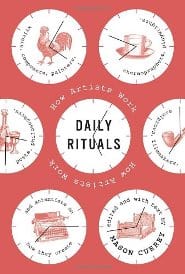
Mason Currey – Daily Rituals, How Artists Work
Have you ever wondered about the daily routines of the greatest artists of all time? If yes, then this is a book for you. Mason Currey took the time to collect and catalog the habits of the likes of Freud, Dickens, Fellini, and Mozart, to show how they produced their great works. It’s a truly fascinating read, and it clearly shows that in the area of art, consistent self-discipline wins over bursts of creative inspiration every step of the way. “Showing up” and “consistent self-discipline” is key.
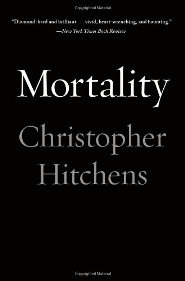
Christopher Hitchens – Mortality
Hitchens wrote this book on his deathbed, shortly before he died from cancer. It’s a poignant meditation on death and the sad process of dying. But it’s also full of witticisms, and great thoughts about life and “dying livingly”. Hitch would never let cancer get in the way of his work, and even during his last hours, he maintained his unshakable skepticism and stoical attitude. The book also contains an epilogue written by Hitchens’ wife, Carol and it’s a great addition to his autobiography, Hitch-22.
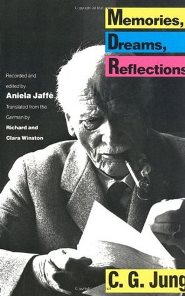
Carl Jung – Memories, Dreams, Reflections
This autobiography changed my life forever. It was dictated by Jung to Aniela Jaffe at a time when the great psychologist was around 84. Besides some pieces about Jung’s life, it mostly contains his contemplations about the nature of the unconscious. The chapter called “Confrontations with the Unconscious” is truly unforgettable, but the whole book is a blend of dreams, creepy occurrences, and interesting case studies. There’s also a chapter about Jung’s travels, the gnostic “Seven Sermons to the Dead” and some wonderful thoughts about life after death (or lack thereof).
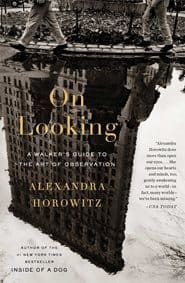
Alexandra Horowitz – On Looking
I learned about this book from one of my favorite blogs, The Brain Pickings. Written by a New Yorker, in a New York-style, “On Looking” makes you notice things you took for granted. The author takes eleven walks (mostly around NYC) with experts in different areas. They will surely impress you by revealing the hidden beauty of the urban landscape. There’s the front man who cares about design. There’s the petrologist (rock expert) who makes you wonder how the skyscrapers came to be. Finally, there’s a dog that learns about the world through the sense of smell. After reading “On Looking” you will never see your city in the same way.
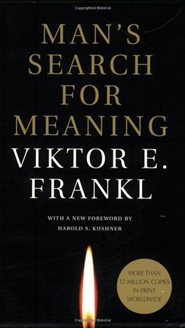
Victor Frankl – Man’s Search For Meaning
Nowadays everybody seems to be preoccupied with the meaning of their life. Studies show that the majority of people cannot find a satisfying answer to the all-important question: “What’s the meaning (or purpose) of your life?” Victor Frankl, the creator of logotherapy, and survivor of Auschwitz shares his ideas on the matter. The stories from the camp will give you chills, and make you appreciate your life so much more. You will also learn about the areas which may give “why” to your life.
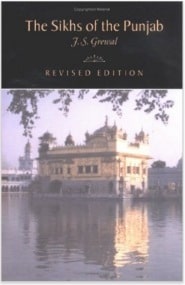
J. S. Grewal – The Sikhs of Punjab
I bought this book from an old librarian in Amritsar, in a small shop right next to Harmandir Sahib (The Golden Temple) – the holiest of Sikh temples. I then read it during my fifty-hour, three-thousand-kilometer train ride from Punjab to Kerala, and it was worth my time. If you never heard of Sikhs or Guru Nanak, this book will enlighten you in so many ways. Among other things, you will learn about the birth of the religion, the struggle against the Muslim conquerors, and the infamous “Operation Blue Star” which was the most shameful act conducted by the government of Indra Gandhi, and which affected India to this day.
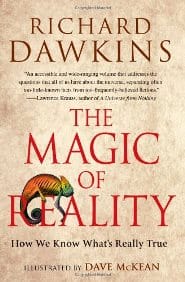
Richard Dawkins – The Magic of Reality
I got this book in paperback for three hundred rupees during my holidays in Kerala, India. It’s a truly wonderful read, and it should have its place in every high-school curriculum. Richard Dawkins answers some of the greatest questions of science (for example, “What are things made of?” or “What is a rainbow?” or “Why do we have night and day, winter and summer?”) in a really simple language. Before giving the scientific answer, however, he shares some of the myths that helped peoples of yore to make sense of the world. Both explanations are beautiful, but only one is true.
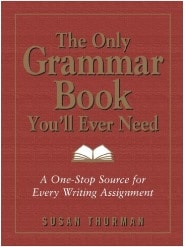
Susan Thurman – The Only Grammar Book You’ll Ever Need
This is a reliable resource for every person who wants to improve their grammar (not only for Grammar Nazis). In it, you will find answers to all sorts of grammar questions that used to keep you up at night. There’s a lot of information about the parts of speech, elements of a sentence, punctuation, etc. At the end of the book, there’s even a mini-manual that will help you deal with specific writing projects.
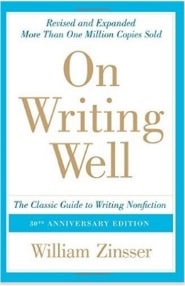
William Zinsser – On Writing Well
“On Writing Well” is the best writing manual I’ve come across so far. The book itself is the epitome of great writing, and it contains many clear rules about the craft. Zinsser was a lifelong contributor to many of the leading magazines and papers in NYC. His knowledge of the subject comes from personal experience, and you will find many of his writings (with explanations) within the book.
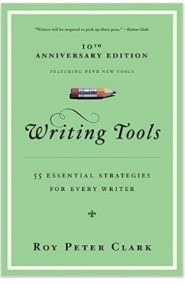
Roy Peter Clark – Writing Tools – 50 Essential Strategies for Every Writer
There’s more to this book than the catchy title. It’s a true manual for everyone who wants to improve their writing skills. It focuses less on the overall philosophy of the craft, and more on the specific techniques you can use during your work. Moreover, the author invites you to interact with the book and complete some of the exercises that will improve your scribbling skills (like checking your daily paper for examples of good and bad writing, etc..)
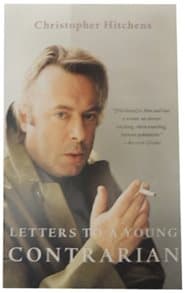
Christopher Hitchens – Letters To A Young Contrarian
Just like the great work by Rilke, it’s a collection of letters, but this time it’s not about poetry. In the book, Hitchens offers some words of wisdom about becoming a contrarian – a person who sees the world objectively and speaks out in times of moral crisis. Just to give you an idea, here’s an excerpt from the book: “The high ambition, therefore, seems to me to be this: That one should strive to combine the maximum of impatience with the maximum of skepticism, the maximum of hatred of injustice and irrationality with the maximum of ironic self-criticism. This would mean deciding to learn from history rather than invoking or sloganising it”.
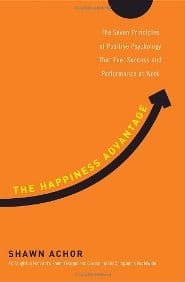
Shawn Achor – The Happiness Advantage
I’ve read many books about happiness, but this one is the best. Shawn Achor takes you on a journey through modern scientific research about the area of happiness. There’s no psychobabble here – only facts revolving around the emerging field of positive psychology. As it turns out, happy people are far more productive and healthy than unhappy ones. From the pages of the book, you’ll learn about the sources of happiness, and you’ll be able to use that knowledge to benefit your life.
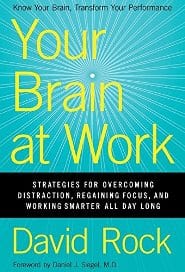
David Rock – Your Brain at Work
That manual should be given to all office workers before they even touch the “on” button on their computers. Incredibly, most people don’t have a clue about how their brains operate during work. David Rock breaks down all the rules you need to know to optimize your performance in the office, avoid distractions, prevent “taxing” your brain, regain stamina after difficult tasks, and collaborate with others more effectively.
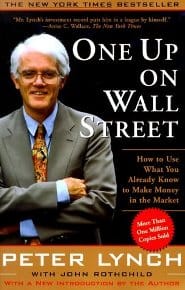
Peter Lynch – One Up On Wall Street
In this Wall Street classic, the legendary investor, Peter Lynch shares his priceless investing wisdom. After gaining a basic idea of what the stock market is and what it can do for you, you will learn if you have the guts to become a solo investor (most people don’t). Also, you will get some tips about picking the right stocks, building an investment portfolio, and types of stocks to avoid. Even if you don’t plan on investing by yourself, you may study this book just to understand the money game a little bit better. If on the other hand, you think you can make it to the big leagues of investing, this is an absolute must-read.
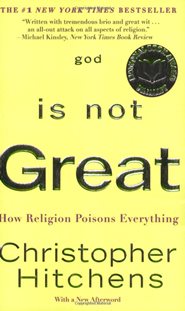
Christopher Hitchens – god is not Great
When asked why he’s an atheist, Hitchens answered that he’s an anti-theist and that in his view, religion is the greatest source of evil in the world. In “god is not Great”, he gives many reasons to support this claim. It’s a masterly written book that destroys religion. “The Hitch” was always straightforward and unapologetic in his views and in this book, he’s at his best. He expertly hacks through the arguments for religion, and his chapter about the Koran and its origins is a true masterpiece.
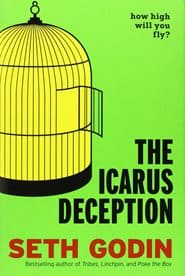
Seth Godin – The Icarus Deception
Seth Godin is not only a marketing genius but also a business philosopher with an original point of view. “The Icarus Deception” is my favorite among his books. I remember listening to it while walking among the skyscrapers of NYC. It changed my life because it showed me that life worth living is about non-conformity and “picking yourself”, instead of succumbing to the allure of mass culture, or mass-anything. Seth echoes the words of Terence McKenna who said that you should “create your roadshow” and accept the possibility of failure. Only then you can give birth to something worthwhile.
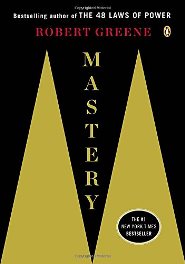
Robert Greene – Mastery
If, like me, you’re passionate about the subject of developing human potential, you will greatly appreciate this book. Have you ever wondered how Mozart was able to reach the heights of his genius? Or how Leonardo da Vinci learned to draw like a master? This book will give you answers. Moreover, it will show how you can become the master of your craft. From picking your calling to finding mentors to increasing your social intelligence, this book is a tour de force that offers a recipe for greatness.
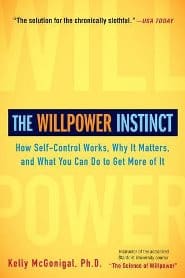
Kelly McGonigal – The Willpower Instinct
“The Willpower Instinct” is one of my favorite picks, when it comes to popular psychology. Based on research conducted at Stanford, it reveals many interesting findings about willpower. First of all, it’s limited and you have to treat it with care. Second of all, it’s like a muscle and you can train it, to increase it. Last but not least, if you use all of it, you will easily give in to instant gratification (which, in effect will damage your self-esteem). I highly recommend this book to anyone who wants to know more about their psyche.
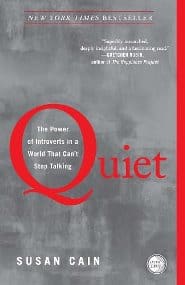
Susan Cain – Quiet, the Power of Introverts In A World That Can’t Stop Talking
“Quiet” filled a huge gap in the market, and it became an international bestseller, mainly because it helped introverts to finally feel “ok” about themselves (no one complains about the hardships of being an extrovert and you won’t find books about how to cope with your extroversion). If like me, you’re notoriously introverted, you will find this book useful. After reading it, you may want to reconsider the way you do your work. You’ll also become more unapologetic about claiming your right to be quiet. Solitude is your birthright my friend, and introversion is a power that you can use in your personal and business life. This book will show you how to do it.
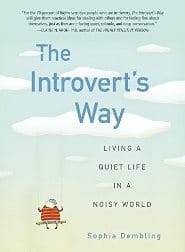
Sophia Dembling – The Introvert’s Way: Living a Quiet Life in a Noisy World
Another must-have for the introvert’s library, “The Introvert’s Way” failed to attract as much attention as “Quiet” but it doesn’t mean it’s no good. It permits you to avoid parties, phone calls, and excessive small talk. It also touches on many other interesting dilemmas of the introverted life – for example, the need to be left alone even by your loved ones (for a while). I’ve found it to be a useful companion along my journeys.
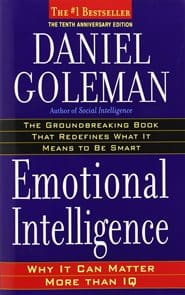
Daniel Goleman – Emotional Intelligence
As a seminal work in popular psychology, “Emotional Intelligence” deserves a place on every serious student’s bookshelf. This work of scientific journalism changed the way we think about intelligence. In the past, IQ seemed to be the factor that mattered most. It helps to predict future academic achievement, but it’s not necessarily a great indicator of overall success in life. According to Daniel Goleman, EQ can matter more than IQ, and he has good evidence to back it up. (A similar work that shaped the modern approach to education is called “Multiple Intelligences” by Howard Gardner).
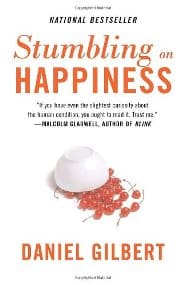
Daniel Gilbert – Stumbling on Happiness
When I first picked up this book, I thought it was another how-to guide about happiness. How wrong I was! This fascinatingly depressive work, written by a renowned Harvard psychologist Daniel Gilbert, says less about happiness itself, and more about the fallacies of the human mind, and our innate inability to predict the future. First of all, achieving that big goal of yours won’t make you happier – so seize the day my friend, and try to enjoy the moment instead of envisioning great happiness in the future (because it may never come). Secondly, you will probably maintain the same, base level of happiness throughout your life. “Stumbling on Happiness” is a sobering read that will make you think differently about humankind and the subject of happiness.
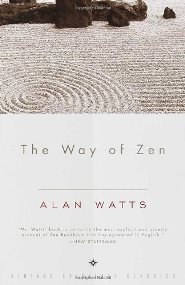
Alan Watts – The Way of Zen
In the highly interesting videos on YouTube, Alan Watts makes his case as a “philosophical entertainer”. Yet in “The Way of Zen” he’s as rigorous in his approach, as any distinguished scholar should be. His book is one of the first English introductions (and still one of the best ones) to the subject of Zen Buddhism. At the beginning it’s a bit dense, but if you get through it, you will be illuminated in so many ways. It’s written in a clear, authoritative style and it consists of two parts: the first one is about the background and history, and the second one is about the principles and practices of Zen.
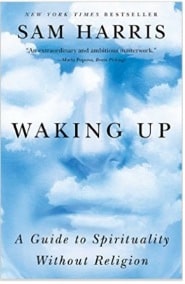
Sam Harris – Waking Up
Sam is one of my favorite modern philosophers. He is a voice of reason on the liberal side of the political spectrum. His views about religion thrust him into the public sphere and made him one of the “Four Horseman” of the new atheism, among Dawkins, Dennet, and the late Christopher Hitchens. “Waking Up” is highly necessary in today’s world. So many people leave religion, only to find that their lives lack that all-essential spiritual element. Sam’s book is an attempt to fill the void and provide the readers with practical means of getting closer to the numinous – this time without religious superstition. Moreover, it also contains an interesting chapter on psychedelics.
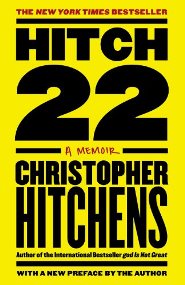
Christopher Hitchens – Hitch-22
Hitch-22 is an autobiography of Hitch, and just like “Catch”, it’s masterly crafted, amusing, ironic, and gut-wrenching at the same time. Hitchens led an interesting life, to say the least. He was a constant traveler, but he wouldn’t travel to your usual destinations (he preferred the “Axis of Evil” countries). He was a heavy boozer and it made him even more interesting. He was a fervid supporter of minorities and fought against theocracy and totalitarianism across the globe. His autobiography tells a wonderful story. It made me realize that as an individual, you can help to change history – not in a dramatic way perhaps, but as one of the voices that will ultimately lead to positive developments.
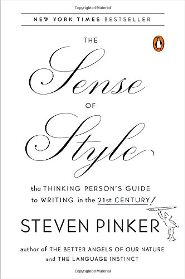
Steven Pinker – The Sense of Style
If you’re bored with the archaic rules of the classic “Elements of Style”, you can pick up the book by Steven Pinker, and learn how to write more effectively. Pinker specializes in the development and origins of language, and in contrast to grammar Nazis, he proposes a flexible approach to writing. The key is not to churn out a strictly grammatical copy but to let others fully and easily understand your message. From the book you will learn about phonaesthetics, using parallel language, avoiding pomposity, and “the curse of knowledge”.
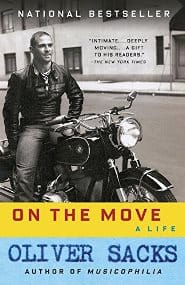
Oliver Sacks – On the Move: A Life
It’s sad that I’ve learned about Dr. Sacks so late. The famous neurologist wrote his autobiography shortly before he died in 2015. I have to say that “On the Move” was one of the most interesting and life-transforming books I’ve ever read (actually I’ve listened to it during my long walks through Madrid). It taught me so many things about human existence and how it plays out over many years. More than anything, it taught me about the value of caring for other people, creativity as a collaborative process, and accepting death and illness (because they will come). Before diving into the contents of the book, I suggest you watch the brilliant “Awakenings” with Robin Williams and Robert de Niro. I’m sure it will get you interested in the character of Dr. Sacks.
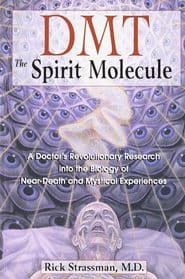
Rick Strassman – DMT: The Spirit Molecule
If you’re into all things mystical, you’re going to enjoy “The Spirit Molecule” a lot. DMT is the most hallucinogenic compound known to humankind, and Dr. Strassman felt like trying it out on volunteers (in the clinical setting, and under supervision, of course). The stories they share after their trips are otherworldly and unforgettable. The subjects are being transported to other dimensions, they meet beings, they achieve illumination, etc. After reading “DMT” I felt that we’re in infancy when it comes to understanding the human brain. It also sheds new light on the UFO phenomenon.
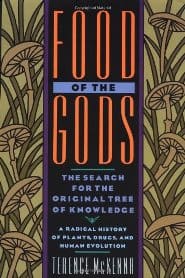
Terence McKenna – The Food of the Gods
Terence McKenna is one of my favorite bards of all time. He was eloquent, knowledgeable, and a bit crazy which makes him especially worthy of attention. “The Food of The Gods” is probably the finest of his books. McKenna’s case is that human-animal was always addicted to something (or always had a relationship with some neuroactive plants). In the civilizations of times past, these might have been mushrooms, DMT, THC, soma, bhang, or ayahuasca. Then it all faded because of religious dogma and the rise of the “dominator model” of society that hates anything contributing to the dissolution of cultural boundaries. Hallucinogens have been replaced by substances that fit the authoritarian, hierarchical culture – tobacco, alcohol, sugar, coffee, and tea. It’s time to wake up and once claim our right to experiment with hallucinogens. Thanks to McKenna and others, the revolution is already underway.
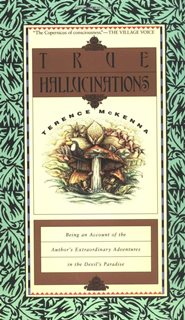
Terence McKenna – True Hallucinations
“True Hallucinations” is a great adventure book. It tells the story of the young McKenna and his friends who, in their naiveté, venture into the little-known regions of the Amazon. What they search for is the ultimate hallucinogen that can potentially change the course of Western civilization. So when they finally find the magic mushroom the real fun begins. There’s telepathy, the trans-linguistic matter, and the UFO’s. All kinds of jungle madness break loose and the adventurers are swept into the world of illusions and chaos. Highly recommended.
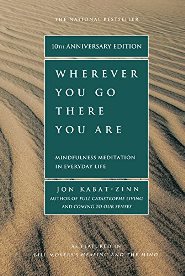
Jon Kabat-Zinn – Wherever You Go, There You Are
Jon Kabat-Zinn is the true hipster of mindfulness – he knew all about it before anyone in the West even knew what it was. His short book (best absorbed as a three-hour audio) is a classic introduction to the art and science of living in the present. It’s secular in tone, and it lets you stop, and take a fresh breath amid everyday madness. You will learn about basic relaxation techniques, walking meditation, and much more. If you’re prone to anxiety or you’re constantly dwelling on the past, please read this book. It will help you.
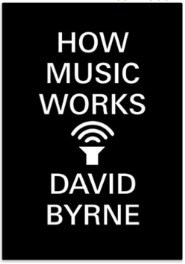
David Byrne – How Music Works
This is the magnum opus of the leader of the Talking Heads (and the initiator of many other artistic projects). Unlike “The Music and the Brain” books, “How Music Works” is concerned more with the outward musical experience and the milieu in which it is produced. Did you know, for example, that the CD was created especially to accommodate the Ninth Symphony? Mr. Byrne beautifully explains the music industry, and the technology behind great recordings, tells you how to put on a great show, and even shares some tips about finance and music. I’ve found this book highly interesting because it deals with the subject from a different angle, and it’s written by a man who’s been in the game for years.
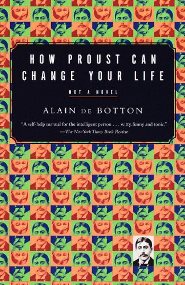
Alain de Botton – How Proust Can Change Your Life
This book is a unique blend of biography, philosophy, and self-help. Alain de Botton shares the story of Marcel Proust, the author of the “Remembrance of Things Past”. Here are some of the interesting ideas I captured from the book:
- You want most of what you can’t get – especially when it comes to romance. True pleasure is oftentimes contained in seeking and fantasy, not in the actual possession.
- Habit diminishes life’s experience (whether it be a place, a thing, or a person). Always seeking the new seems to be the answer. That’s why you always dream of the great adventure – because then you never know what’s around the corner.
- Find great beauty in the seemingly ordinary things (like a loaf of bread). The art of looking and mindfulness are essential here.
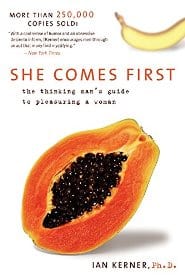
Ian Kerner – She Comes First: The Thinking Man’s Guide to Pleasuring a Woman
This book is a true eye-opener for anyone who wants to learn more about women’s sexuality. It teaches you how to make her come almost 100% of the time (the answer lies at the tip of the tongue). Unfortunately, penetration is not the best way to make her come, and it leads to female orgasms only in about 30% of sexual encounters. But there’s a simple solution to this quandary – your tongue. “She Comes First” will teach you how to please and tease like never before.
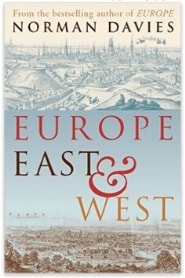
Norman Davies – Europe East & West: A Collection of Essays on European History
As a deeply illuminating collection of essays “Europe East & West” touches upon many angles of European history. Davies is one of the most acclaimed historians of the area of Eastern Europe, and his essays on the subject are exquisite in their erudition and attention to detail. From the book, among other things, you will learn about misunderstandings coming from the Allied victory in 1945, the influence of Islam on the West, and the beautiful Northern Sagas.
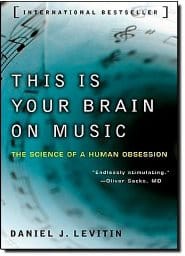
Daniel J. Levitin – This is Your Brain on Music
I found this one while strolling among the eighteen miles of books of the famous Strand Bookstore in NYC. In the beginning, the volume seemed a bit too complicated because it required some degree of knowledge about music theory (basically the first seventy pages of the book deal with that subject). But when you finally plow through that hard, yet quite enlightening section, you will encounter some fascinating facts about music and how it relates to the brain. You will learn about timbre and the music machine which can produce any sound you want, just by “weaving together” different audio-frequencies. You will also learn about a plausible evolutionary explanation for music, and why the expectation and the resolution (or lack thereof) are the faithful companions of any great musical composition.
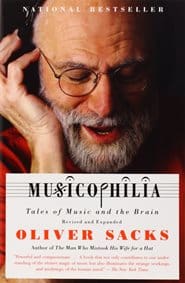
Oliver Sacks – Musicophilia: Tales of Music and the Brain
With his usual empathy, intelligence, and subtle humor, Oliver Sacks reveals stories about his patients and their unusual relationships with music. After reading this book you will realize that being musical is being human (although people with amusia might beg to differ). You will read a story about a man who was struck by lightning, and after his accident became all too musical. Then, there’s a man who suffered from amnesia and coped with his condition by singing along. You will read about people with Alzheimer’s who can’t remember their names, but who cheerfully sing songs from their childhood, and people with synesthesia who see sounds as colors. And that’s just scratching the surface. The book is expertly written and well researched which makes it a must-read for any music fan.
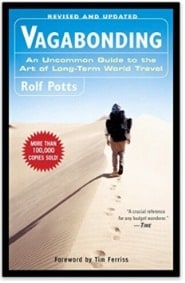
Rolf Potts: Vagabonding: An Uncommon Guide to the Art of Long-Term World Travel
Beware of reading this book; it might convince you to drop everything and embark on a grand journey across the globe. Vagabonding is not a typical travel guide with a list of tourist attractions. It’s also not your how-to book where the author recommends the best type of socks for the Siberian winter. It’s more about the philosophy of travel, and long-term travel as a way of life. I’m quite sure it will change your life significantly. Why? Because shortly after putting it down you’ll start to think about your great adventure (I immediately started to plan a long trip across Morocco). This seed will take root in your mind, and then it will sprout into new journeys and new life. The book also contains a great bit about treating your daily life as travel. If you just look closely enough, even your local grocery store may seem as exotic, as a Persian bazaar (well, almost).
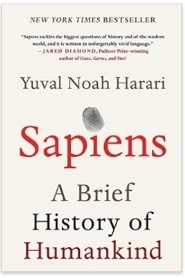
Yuval Harari – Sapiens: A Brief History of Humankind
This book will change the way you look at humanity. In it, Mr. Harari treats humans as just another species of animal that lives and dies on Planet Earth. And how deservedly harsh this treatment is! From the humble beginnings to the great empires, you will learn about the history of our species through the lens of history, social sciences, psychology, and neurology. It’s a depressing, but necessary book that will show you the Homo Sapiens, not as a revered individual, but as a successful species that destroys everything on its way and is naturally predisposed to xenophobia and superstition. I appreciate you taking the time to browse through this lengthy list of non-fiction books. What are your favorites? Next up, you may want to explore a list of the most interesting sophisticated words in English.
Hey there, welcome to my blog! I'm a full-time entrepreneur building two companies, a digital marketer, and a content creator with 10+ years of experience. I started RafalReyzer.com to provide you with great tools and strategies you can use to become a proficient digital marketer and achieve freedom through online creativity. My site is a one-stop shop for digital marketers, and content enthusiasts who want to be independent, earn more money, and create beautiful things. Explore my journey here, and don't forget to get in touch if you need help with digital marketing.

